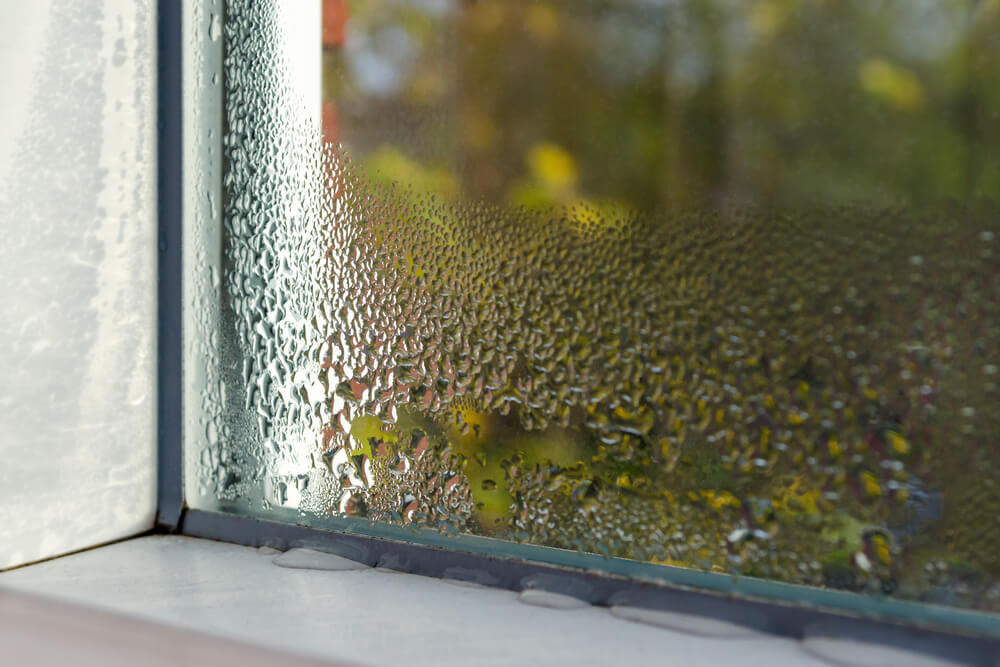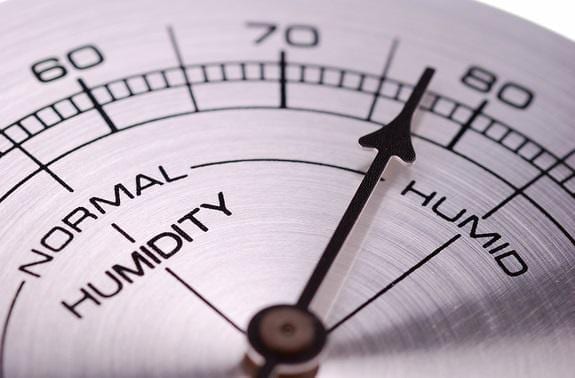While many of us know that a humid forecast can lead to uncomfortable conditions outside, you may be surprised to learn that humidity levels in the home play an important role in maintaining a comfortable temperature inside. The internal humidity levels of your home are actually a key component for your health, comfort, and energy bills.
What Is Humidity?
Humidity is the level of water vapor in the air. In Central Kentucky especially, there is always some level of water vapor present. Humidity actually causes you to feel hot because any moisture trapped in the air around you will retain heat.
So, the higher the humidity level in the air, the hotter you will feel. Unlike dry heat, humid heat can’t be easily processed by your body. As your body begins to register heat, it will naturally try to cool itself off by sweating.
However, with humid conditions, any sweat your body produces will be slower to evaporate off of your skin. Instead, this sweat will remain on your skin and trap the heat. This sensation is why humid conditions tend to feel more miserably muggy than dry heat conditions.
How Does My AC Unit Process Humidity?
Your cooling system actively works to remove heat and excess moisture from the air as part of its cooling process. As warm air is pulled into your system, it is passed over the evaporator coil.
This coil causes the water vapor in the warm air to condense so that it can be separated from the air itself. Your cooling system can then move the cool, dryer air into your home and drain the condensation outside. A properly performing cooling system will be able to handle significant amounts of humidity but may be overwhelmed if there is significant moisture to contend with.
Signs of High Humidity in the Home
During extreme summer conditions, an increase in your indoor temperature and humidity levels can be expected. However, if your home or office is uncomfortably humid, your system may need repair. A few common signs of excess humidity indoors may include:
- A moist, clammy feeling in the air and on your skin.
- A musty or damp smell throughout your home or office.
- A moist, sticky feeling on your wood furniture, floors, fabrics, etc.
How to Manage Humidity In Your Home

Indoor temperatures and humidity levels increase during the summer months. If you and your family are experiencing abnormal and uncomfortable home humidity levels, then your system may be in need of repair. To help alleviate these issues, be sure to schedule a system check for your cooling system.
An unbalanced humidity level indicates an unbalanced cooling system, which can quickly be diagnosed with a complete system check.
Even if your AC is functioning perfectly, it still may not be able to pull as much humidity from the air as you might wish. Consider purchasing a dehumidifier. A single, mobile dehumidifier can help remove moisture from a specific room, or a whole-home dehumidifier can double up with your cooling system to eliminate excessive moisture from your entire home. You generally want to maintain between 35 to 45 percent humidity.
Benefits of a Dehumidifier
Installing a whole-home dehumidifier comes with many benefits, such as improving indoor air quality and comfort levels in your home. Here’s how:
- Reduced Humidity Levels: Dehumidifiers help maintain optimal humidity levels in your home by removing excess water from the air.
- Prevention of Mold Growth: By lowering humidity levels, dehumidifiers help to inhibit the growth of mold and mildew. These fungi thrive in damp environments and can cause respiratory issues, allergic reactions, and structural damage to your home.
- Increased Health Benefits: By removing moisture from the air, dehumidifiers help to create a more comfortable indoor environment to breath in. Maintaining proper humidity levels can help alleviate respiratory issues such as asthma and allergies.
If your home or office feels too humid or too dry, contact Fayette Heating & Air today by calling 859-549-5753 or scheduling an appointment online. Our technicians will work to repair your air conditioning unit or help you find a more effective home humidity control solution.


 Skip to content
Skip to content

